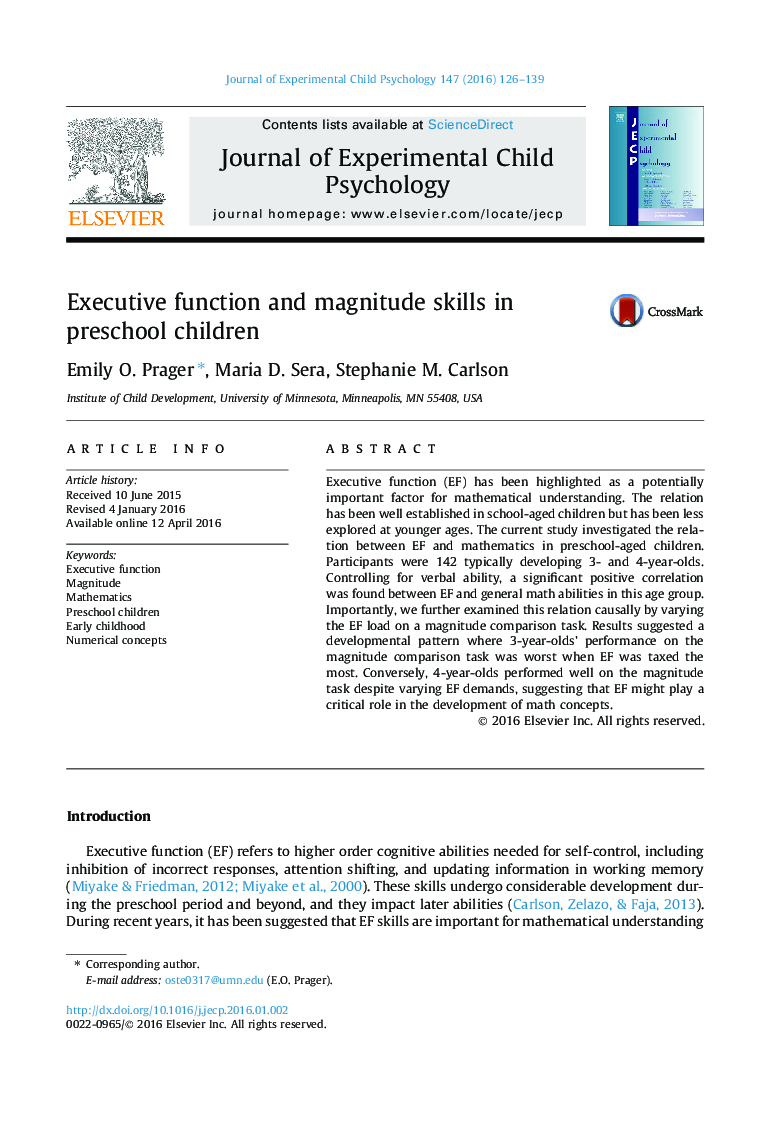| Article ID | Journal | Published Year | Pages | File Type |
|---|---|---|---|---|
| 917900 | Journal of Experimental Child Psychology | 2016 | 14 Pages |
•Executive function (EF) is an important factor for mathematical understanding.•A significant relation was found between EF and general math abilities.•Causal exploration suggested younger children worst if EF demand is high.•Older children perform well on math tasks when EF demands are both high and low.
Executive function (EF) has been highlighted as a potentially important factor for mathematical understanding. The relation has been well established in school-aged children but has been less explored at younger ages. The current study investigated the relation between EF and mathematics in preschool-aged children. Participants were 142 typically developing 3- and 4-year-olds. Controlling for verbal ability, a significant positive correlation was found between EF and general math abilities in this age group. Importantly, we further examined this relation causally by varying the EF load on a magnitude comparison task. Results suggested a developmental pattern where 3-year-olds’ performance on the magnitude comparison task was worst when EF was taxed the most. Conversely, 4-year-olds performed well on the magnitude task despite varying EF demands, suggesting that EF might play a critical role in the development of math concepts.
